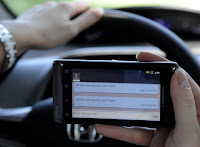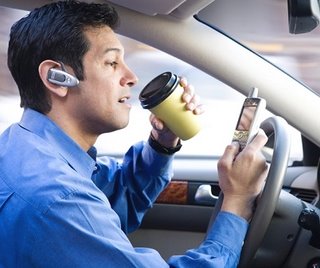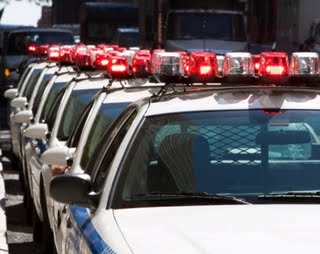Seven Bad Driving Habits That May Also Be Illegal
 |
| Seven Bad Driving Habits |
Let’s face it: Driver’s Ed was a while ago. Over the years, our perfect double-handed grip on the steering wheel may have slipped a little; perhaps other bad habits have crept in as well.
And whether we realize it or not, some of those habits may be illegal.
It’s true that traffic laws can be confusing. They can vary by state, and even by municipality. A violation in one place -- say, turning right on red in New York City -- can be perfectly legal just over the city border.
The evolution of our traffic laws can also be a source of confusion. As the use of mobile phones has spread, for example, safety experts have recognized their role in distracting drivers, and states are adopting laws to combat the problem. Those laws are still developing. While most states have outlawed texting while driving, some have made it illegal to use a phone at all while driving, although others have barred it only for younger drivers.
Still, when it comes to driving, the patchwork quilt of traffic laws should take a back seat to safety. Here are seven habits to change today.
1. Using Your Mobile Phone While Driving
It may be difficult to ignore the ping of an incoming text message, but it’s essential to keep your eyes on the road. With distracted driving becoming an increasingly important issue, expect more states to crack down on any use of a mobile phone. In fact, Washington State just did so in an innovative way with its new DUIE (Driving Under the Influence of Electronics) regulation. But regardless of where you are, put that phone in airplane mode before you hit the gas.2. Driving With Headphones On
Listening to music on your car radio can be distracting enough. But with headphones at your ears, you may be shutting out important noises -- like car horns, railroad-crossing alarms or emergency vehicle sirens -- as well as breaking the law in some states.3. Tailgating
Following a car too closely can happen when a driver isn’t paying close enough attention to the surrounding traffic. It can also result in a ticket. The space you should leave depends on your speed and the local conditions (e.g., a traffic jam or rain storm); try to keep what’s generally referred to as a “reasonable and prudent” distance from other cars.4. Changing Lanes Without Signaling
In heavy traffic, using your blinker to signal a lane change is a necessity; without it, other drivers won’t know your intention. When traffic is light, though, it’s easier to be lazy about turning it on. You may or may not be pulled over for this infraction, but good habits begin with good communication, regardless of conditions or laws.5. Speeding
You’re running late and traffic is light. You could shave a couple of minutes off your travel time if you speed up, right? Not so fast. High speeds make a crash more likely, says the Insurance Institute for Highway Safety, since it takes longer to stop or slow down. Statistics prove the point: In 2015, says the Insurance Institute for Highway Safety (IIHS), 27 percent of all crash fatalities -- more than 9,000 deaths -- were related to speed. That appointment you’re late for can wait. Abide by the speed limit.6. Not Having Your Headlights On
Obviously you need headlights for nighttime driving, but you may not always think to pop them on at dusk or in bad weather. Just remember to over-communicate while driving, and in this case, headlights advertise your presence as well as help you navigate. Laws vary on when to use headlights, but if there’s any question, don’t hesitate: It’s as easy as flipping a switch.7. Not Wearing a Seat Belt
While clicking a seat belt is pretty standard practice for most drivers (more than 90% of us use one, according to the National Highway Traffic Safety Administration [NHTSA]) at least 27 million Americans still don’t buckle up. Yet seat belts saved almost 14,000 lives in 2015 alone. And of course, “click it or ticket” is a familiar phrase for a reason. So don’t neglect the seat belt. It’s important, even if you’re just driving around the corner.Labels: bad_driving, distracted_driving
|
--> www.FedPrimeRate.com Privacy Policy <--
> SITEMAP < |





